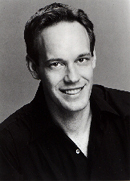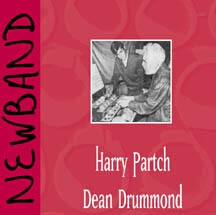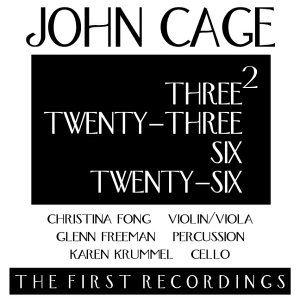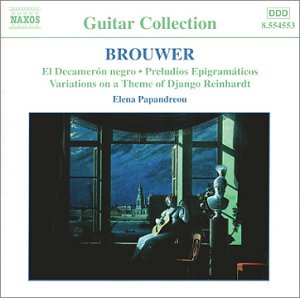 |
|
 |
|
| About Us | Essential
Library |
Read Past Issues | Resources | Composer Links |
Text by Evan Ziporyn In an age of trends and fashions, movements and anti-movements, genres and sub-genres, Julia Wolfe's life and work defy early categorization. On the surface, she seems the quintessential composer for the '90s --New York-based, politically aware --and, don't forget, female --and in fact her career has been appropriately meteoric. In the last few years she has sprung into the consciousness of the musical cognoscenti through a few startlingly individual and unforgettable works for orchestra, string quartet, chorus, and chamber ensemble, and she is now rightfully regarded as one of the key musical voices of her generation. Given all this, one would ordinarily expect something befitting the "latest thing." But when one hears her music, the catch-phrases immediately become inadequate, one-dimensional, and simplistic. The music's simply too damn real to be described by an "ism." Born in Philadelphia in 1958, her resume is bedecked with dazzling degrees and prizes: doctoral work at Princeton, MM from Yale, a Fullbright Fellowship, and a generous assortment of grants from the Koussevitsky Foundation, Meet the Composer/Reader's Digest, ASCAP, the American Academy and Institute of Arts and Letters, and other august bodies. Her pieces have been performed by an equally prestigious cast of characters: the San Francisco Symphony, the American Composer's Orchestra, the Cassatt Quartet, the Lark Quartet, Orkest de Volharding, Le Nouvel Ensemble Moderne, and the New York Youth Symphony. But while certainly impressive, the list leaves out the most important parts: her work as co-founder of New York's Bang On A Can Festival, where she has been responsible for the presentation of hundreds of new and unknown works over the past seven years; and her studies with composer Martin Bresnick, with whom she shared a fascination and engagement with music of all stripes. Julia Wolfe's appetite for music is wide-ranging and voracious; her enthusiasm for late Beethoven is rivaled only by her passion for Led Zeppelin, or perhaps her love of traditional American folk music. These influences and many others can be heard subtly but clearly in her work, yet in no way is her music a pastiche of styles. Rather, disparate sounds and structures are put to new, unexpected uses, the point being not one of self-conscious reference, but rather that of finding expression for the unique way she has processed the material. There are no power chords in the breathtakingly virtuosic string quartet Early that summer, but the vibrancy of rock and roll sears through every moment. Similarly, one can sense the spirit of Stravinsky and Andriessson in On Seven-Star-Shoes and The Vermeer Room, and yet these pieces have identities that are distinct and utterly Wolfe-ian.
|
GREAT LIT AS OPERA: Operas made out of the stories of famous books rarely turn out well. But "if successfully transferring great literature to the operatic stage is next to impossible, someone forgot to tell the Russians." Andante 02/20/02 A LITTLE PORNO, A LITTLE SEX, A LITTLE S&M? The English National Opera's new Calixto Bieito-directed production of Verdi's Masked Ball hasn't even opened yet and it's controversial. According to the English papers: "The chorus are in a 'state of rebellion'; the lead tenor has pulled out; the dress rehearsal - which would normally be available for ENO Friends to see - has been played behind closed doors. The cast were also said to be unhappy about the opening scene, which involves male singers sitting on toilets, and a scene in which the chorus are called on to give a Nazi salute." The Guardian (UK) 02/21/02 REINVENTING OPERA? A new London opera company is trying to reinvent the form. Its founders believe that "the only way to bring opera back to the heart of popular culture is to bring it back into contact with popular culture - even Teletubbies. This may not produce great or long-lasting works, but it will help keep opera contemporary, and, it's hoped, bring in new audiences. For all the opportunities it gives to new writers, Tête à Tête's primary concern is to attract people put off by opera's snobby image." The Guardian (UK) 02/18/02 STAYING INVOLVED: How "involved" should a musician look while he or she is performing? "In classical performance, there is a range of 'looking involved', from the skilfully charming variety to the grotesquely off-putting. It depends so much, also, on the innate character of the player. Audiences may not always know the music, but we've all been trained by ordinary life to interpret body language, and we can sense the degree of artifice used by a performer." The Guardian (UK) 02/16/02 MOVIES WITHOUT ACTORS? HAH! TRY OPERA WITHOUT SINGERS: "Not only are there no bearded tenors in frilly shirts, Stardust's proud boast is that it has no singers at all. This is an opera where humans are conspicuous only by their absence: no actors, no dancers and, heaven forbid, no fat lady. Instead, Stardust is content to let its audience play the central role, with an array of tech gadgetry forming the supporting cast." Wired 02/19/02 ORCHESTRA MUSICIANS - A PLANE-LOAD OF TROUBLE: About 100 members of the St. Petersburg Philharmonic on their way from Europe to perform a concert in Los Angeles, were tossed off their United Airlines flight during a Washington DC stop Monday. The airline says the "rowdiness of a large portion of the troupe made the eight-hour transatlantic trip from Amsterdam to Dulles difficult for the crew and uncomfortable for other passengers. The group refused to sit down when told to, talked loudly and tossed objects around. 'The group was misbehaving, inebriated, opening their own bottles of alcohol, rowdy and nonresponsive to the crew'." Washington Post 02/19/02 PASSING OF THE RECORDING AGE: Classical recording is drying up. The simple truth is that there are no longer enough classical CDs coming out each month to fill a parish magazine, let alone a consumer glossy with scriptural delusions. What the big labels cannot grasp is that their day is done. All the best music has been recorded many times over by maestros more accomplished and celebrated than any alive." The Telegraph (UK) 02/20/02 SAME OLD MINIMALISM: Philip Glass can still excite the ire of critics. The premiere of Glass' Sixth Symphony gets critic Peter G. Davis going: "A lot of glassy-eyed fans were on hand to give the composer an ovation, but others hoping for something fresh were disappointed. It was pretty much business as usual: the same simpleminded syncopations and jigging ostinatos, the same inane little tunes on their way to nowhere, the same clumsily managed orchestral climaxes." New York Magazine 02/18/02 LEVINE'S
PLAN TO SAVE THE INDUSTRY: James Levine believes that chamber music
holds the answer to classical music's problems. If the symphony orchestra
is a slow and massive battleship, the string quartet is a quick, powerful
PT boat, and the newly designated Boston Symphony music director says that
the adventurous spirit and adaptibility of chamber music must be adopted
by the orchestral world if the industry is to survive another century.
Boston Globe 02/20/02
|
for Classical Album of the Year
Christopher Rouseís Concert De Gaudí For Guitar And Orchestra was the Best Contemporary Composition award and ECMís Manfred Eicher was named Producer of the Year in the classical category. Hereís a complete list of winners. Best Classical Album Berlioz:
Les Troyens
Producer Of The Year, Classical Manfred
Eicher
Best Orchestral Performance Boulez
Conducts Varèse (Amériques; Arcana; Déserts; Ionisation)
Best Opera Recording Berlioz:
Les Troyens
Best
Choral Performance
Best
Instrumental Soloist(s) Performance (with Orchestra)
Best
Instrumental Soloist Performance (without Orchestra)
Best Chamber Music Performance Haydn:
The Complete String Quartets
Best Small Ensemble Performance (with or without Conductor) After
Mozart (Raskatov, Silvestrov, Schnittke, Etc.)
Best Classical Vocal Performance Dreams
& Fables Ė Gluck Italian Arias (Tremo Fra' Dubbi Miei; Di Questa Cetra
In Seno, Etc.)
Best Classical Contemporary Composition Rouse:
Concert De Gaudí For Guitar And Orch.
Best
Engineered Album, Classical
The Adams Chronicles
|

Dead Man Walking Composer: Jake Heggie Conductor: Patrick Summers Performer: Susan Graham, Frederica von Stade Ensemble: San Francisco Opera Chorus and Orchestra Wea/Atlantic/Erato - #86238 No "Nixon in China" or "Einstein at the Beach" but young Heggie has a way with melody and this debut opera suggests there may be better things to come. |
A Prole do Bebe No. 2, Cirandinhas Composer: Heitor Villa-Lobos Performer: Sonia Rubinsky Naxos - Flat out fantastic. Rubinsky makes child's play of Villa-Lobos' thornier conceits. If you live in New York, write this down: Sonia Rubinsky will be performing selections from Vol. 2 and the upcoming Villa-Lobos: Piano Music Vol. 3 on March 14th, Thursday, at 6:30 pm at the Klavier-Haus located at 211 West 58th St. |
Music for the Movies Alfred SCHNITTKE (1934-1998) Composer: Alfred Schnittke Conductor: Frank Strobel Ensemble: Rundfunk-Sinfonieorchester Berlin, Rundfunkchor Berlin Cpo Records Schnittke regarded film music as a legitimate expressive medium and wrote more than sixty film scores and worked with the prominent directors of his day. This collection demonstrates that he understood film composition thoroughly and considered it a new vista for his creative work. |

NEWBAND Composers: Harry Partch, Dean Drummond Innova 561 Works by former cohorts and microtonal pioneers, Harry Partch and Dean Drummond. This stunning new recording is performed by members of Newband primarily on the original Partch collection of hand-made instruments, notable for their sculptural and acoustic beauty. The music integrates declaimed poetry (masterfully performed by Bob Osborne) with colorful instrumental accompaniment. The Drummond pieces are first recordings, the Partch are the first since the 1940s. |
|
Preludes & Fugues for 13 solo strings: Three Postludes; Fanfares Composer: Witold Lutoslawski Conductor: Antoni Wit Naxos - #8555270 A treasure trove of Lutoslawski's "little" works, with lots of delightful listening for even those not fully committed to 20th century work. |
Passacaglia, Symphony, Five Pieces Passacaglia, Symphony, Five Pieces Composer: Anton Webern Conductor: Takuo Yuasa Ensemble: Ulster Orchestra Naxos Who knew that the Second Viennese School could be so...listenable. Has the music changed or have our ears adapted to the atonality? |
Concerto for Strings Composer: Joly BRAGA SANTOS Performer(s): Braga Santos, Creswick, Somov, Blair, Cassuto Marco Polo - Joly Braga Santos is one of the most interesting and gifted composers of the 20th century--and one of the most unknown. His musical language is based on a strong sense of architecture and drama, with generous melodic lines and a natural instinct for structure and formal coherence. If you don't know the work of this 20th century Portugese master, grab it. |
Symphony No. 1 Composer: George Barati Conductor: Laslzo Kovaks, Vladimir Valek Ensemble: Budapest Symphony Orchestra, Czech Radio Symphony Orchestra Naxos - The First Symphony was written in 1963 during a stay in Switzerland. Set in three movements, it is packed with musical incident. The Chant of Darkness was composed in 1993 as an expression of the composerís grief as his daughter lay dying from cancer. The work exhibits a frightening sense of finality. The Chant of Light dates from 1994-5 and is cast in a simple structure, displaying Baratiís love of working with small motivic cells, combined with the use of luscious orchestral color. |

90% Post Consumer Sound Composer: Ellen Band Performer: Adele Armin Ellen Band Band creates 'sound art' from everyday noises with results that sometimes sound celestially musical and sometimes sound like..well everyday noises. |

Three2, Twenty-Three, Six, Twenty-Six Composer: John Cage Performer: Christina Fong, Glenn Freeman, et al. Orchard - #6260 |
String Quartets 1 & 2 Composer: Arnold Bax Performer: Maggini Quartet Naxos - Fresh from the Gramophone Award-winning Naxos recording of Vaughn Williams, the Maggini turn their attention to another English composer of elegiac melodies with superb results. |

Guitar Music, Vol. 2 Composer: Leo Brouwer Performer: Elena Papandreou Naxos - One of the best writers for the guitar alive today, Brouwer combines elements of his native Cuba with jazz and European modernism. Papandreou performs these tricky pieces elegantly. |
|
One-Minute Web Guide The essential guide to intelligent life on the internet |
Publisher: Duane Harper Grant (212) 582-4153 Editor: Jerry Bowles (212) 582-3791 Contributing Editors: Armando Bayolo, Sam Bergman, Joshua Cohen, Karina Cristina Demitrio, Deborah Kravetz (C) Sequenza/21 LLC 2000 |